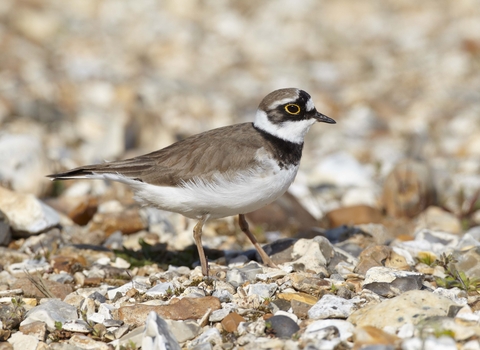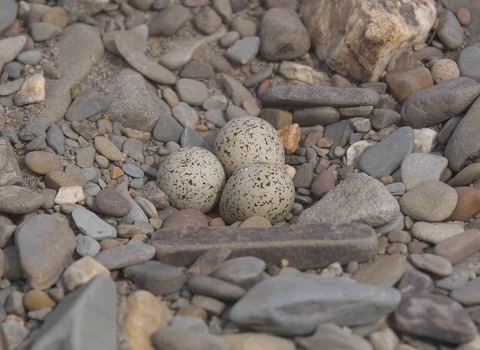
©Richard Steel/2020VISION
©Derek Moore

©Derek Moore
Little ringed plover
The little ringed plover first nested in the UK in 1938, but has since moved in happily! It has taken advantage of an increase in man-made flooded gravel pits, reservoirs and quarries that provide perfect habitats.
Scientific name
Charadrius dubiusWhen to see
March to JulySpecies information
Category
Statistics
Length: 14-16cmWingspan: 45cm
Weight: 40g
Average lifespan: 4 years
Classified in the UK as Green under the Birds of Conservation Concern 5: the Red List for Birds (2021). Protected in the UK under the Wildlife and Countryside Act, 1981.
